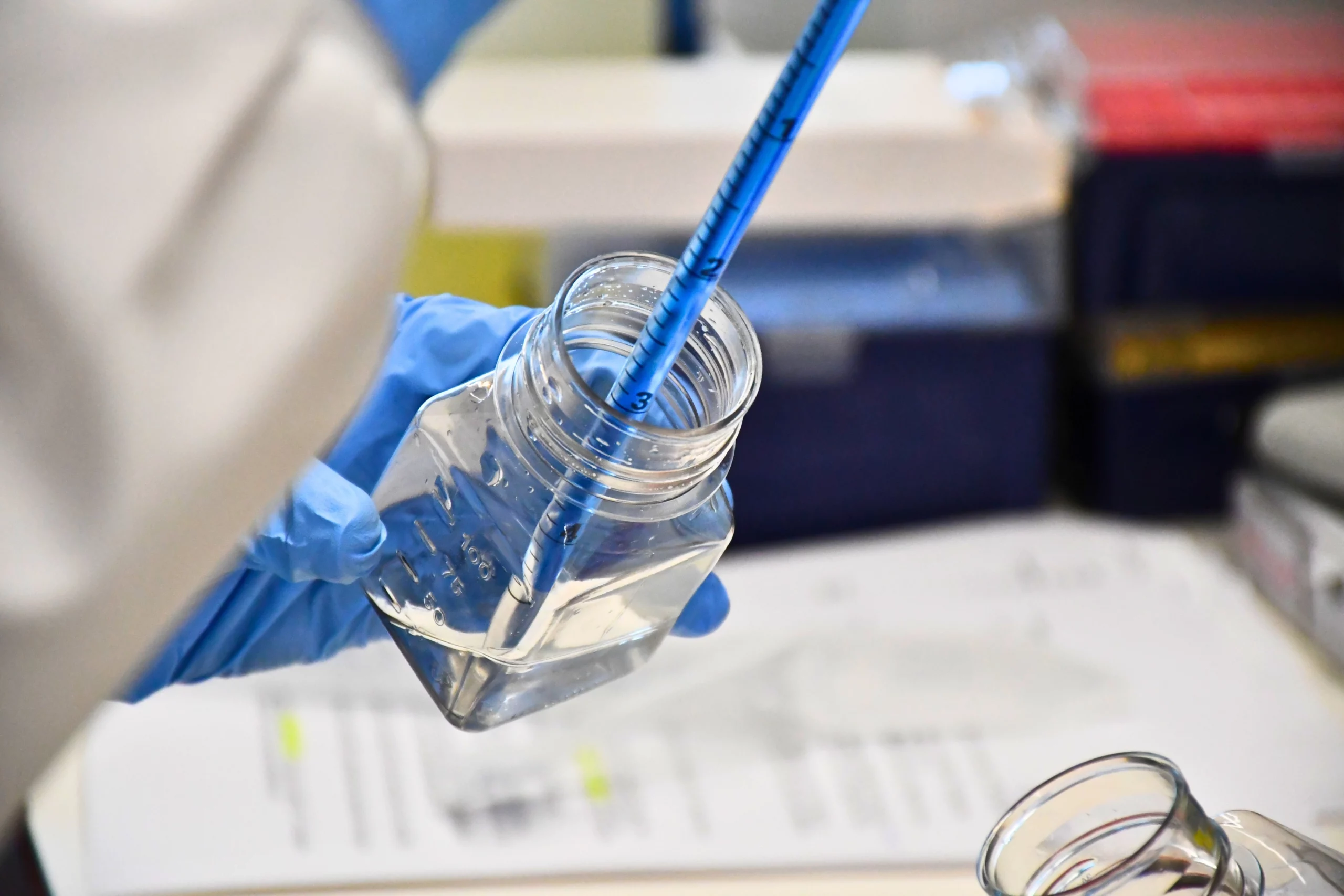Article highlights & insights
BACKGROUND
The presence of TP53 mutations is associated with an unfavorable outcome in patients allografted for acute myeloid leukemia (AML), leading some to question the benefit of an allogeneic stem cell transplantation (allo-SCT) for this patient group, although this has not been studied in a large cohort.
METHODS
A total of 780 patients with AML in first complete remission, with either intermediate- or adverse-risk cytogenetics, whose TP53 mutation status was reported, were included in this study from the European Society for Blood and Marrow Transplantation.
RESULTS
Two-year overall survival (OS) was impaired in patients (n = 179) with evidence of a TP53 mutation at diagnosis (35.1%; 95% confidence interval [CI], 26.7–43.7) as compared to the cohort without (n = 601) (64%; 95% CI, 59.1–68.4; P = .001). In patients with mutant TP53 AML with no evidence of either chromosome 17p loss (17p–) and/or complex karyotype (CK) (n = 53, 29.6%), 2-year OS was 65.2% (95% CI, 48.4–77.6). This was not significantly different to patients without TP53 mutations. In patients with mutant TP53 AML with either 17p– and/or CK (n = 126, 70.4%), the OS was lower (24.6%; 95% CI, 16.2–34; P = .001).
CONCLUSIONS
In summary, the adverse prognostic effect of TP53 mutations in AML following an allo-SCT is not evident in patients with neither co-occurring 17p– and/or CK, and these data inform decisions regarding allo-SCT in patients with TP53 mutant AML.
BACKGROUND
The presence of TP53 mutations is associated with an unfavorable outcome in patients allografted for acute myeloid leukemia (AML), leading some to question the benefit of an allogeneic stem cell transplantation (allo-SCT) for this patient group, although this has not been studied in a large cohort.
METHODS
A total of 780 patients with AML in first complete remission, with either intermediate- or adverse-risk cytogenetics, whose TP53 mutation status was reported, were included in this study from the European Society for Blood and Marrow Transplantation.
RESULTS
Two-year overall survival (OS) was impaired in patients (n = 179) with evidence of a TP53 mutation at diagnosis (35.1%; 95% confidence interval [CI], 26.7–43.7) as compared to the cohort without (n = 601) (64%; 95% CI, 59.1–68.4; P = .001). In patients with mutant TP53 AML with no evidence of either chromosome 17p loss (17p–) and/or complex karyotype (CK) (n = 53, 29.6%), 2-year OS was 65.2% (95% CI, 48.4–77.6). This was not significantly different to patients without TP53 mutations. In patients with mutant TP53 AML with either 17p– and/or CK (n = 126, 70.4%), the OS was lower (24.6%; 95% CI, 16.2–34; P = .001).
CONCLUSIONS
In summary, the adverse prognostic effect of TP53 mutations in AML following an allo-SCT is not evident in patients with neither co-occurring 17p– and/or CK, and these data inform decisions regarding allo-SCT in patients with TP53 mutant AML.
Groups
Group leader
Research topics & keywords
Our Research
Our research spans the whole spectrum of cancer research from cell biology through to translational and clinical studies
Research Groups
Our research groups study many fundamental questions of cancer biology and treatment
Our Facilities
The Institute has outstanding core facilities that offer cutting edge instruments and tailored services from expert staff
Latest News & Updates
Find out all our latest news






